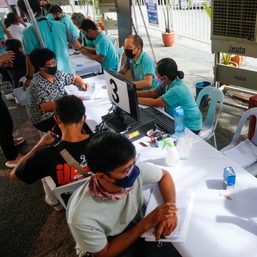SUMMARY
This is AI generated summarization, which may have errors. For context, always refer to the full article.
![[Ask the Tax Whiz] How are private schools being taxed in the Philippines?](https://www.rappler.com/tachyon/2021/06/school-tax-SQ.jpg)
What tax regulation was issued by the Bureau of Internal Revenue (BIR) which excluded for-profit educational institutions from availing of a 1% tax rate under the Corporate Recovery and Tax Incentives for Enterprises (CREATE) law? Which part of CREATE serves as reference for the controversial revenue issuance?
The BIR issued Revenue Regulations (RR) No. 5-2021 on April 8 to implement the new income tax rates pursuant to Republic Act No. 11534 or the CREATE law. Section 2 of the issuance defines proprietary educational institutions and nonprofit as follows:
C. Proprietary Educational Institutions – refer to any private schools, which are non-profit for the purpose of these Regulations, maintained and administered by private individuals or groups, with an issued permit to operate from the Department of Education (DepEd) or the Commission on Higher Education (CHED) or the Technical Education and Skills Development Authority (TESDA), as the case may be, under existing laws and regulations.
E. Non-profit – as used in the definition of Proprietary Educational Institutions and Proprietary Hospitals, means that no net income or asset accrues to or benefits any member or specific person, with all the net income or assets devoted to the institution’s purposes and all its activities conducted not for profit.
The definition was in reference to Section 6 of the CREATE law:
SEC. 6. Section 27 of the National Internal Revenue Code of 1997, as amended is hereby further amended to read as follows:
SEC. 27 (B) Proprietary Educational Institutions and Hospitals. – Proprietary educational institutions and hospitals which are nonprofit shall pay a tax of ten percent (10%) on their taxable income except those covered by Subsection (D) hereof: Provided, That beginning July 1, 2020 until June 30, 2023, the tax rate herein imposed shall be one percent (1%): Provided, further, That if the gross income from ‘unrelated trade, business or other activity’ exceeds fifty percent (50%) of the total gross income derived by such educational institutions or hospitals from all sources, the tax prescribed in Subsection (A) hereof shall be imposed on the entire taxable income…
How are proprietary educational institutions and hospitals which are nonprofit being taxed in the Philippines? If they aren’t for profit, aren’t they supposed to be exempted from income tax, like charitable organizations?
Pursuant to Section 27 of the tax code, proprietary educational institutions and hospitals which are nonprofit shall pay a tax of 10% on their taxable income. However, beginning July 1, 2020 until June 30, 2023, the preferential rate was further reduced to 1% under CREATE.
Pursuant to Section 30 (E) of the tax code, nonstock, nonprofit corporations or associations which claim to be charitable institutions entitled to income tax exemption must be organized and operated “exclusively” for charitable purposes and no part of its net income or asset shall belong to or be for the benefit of any member, organizer, officer, or any specific person.
Based on Revenue Memorandum Circular (RMC) No. 67-2012, charity is essentially a gift to an indefinite number of persons which lessens the burden of the government. In other words, charitable institutions provide free goods and services to the public which would otherwise fall on the shoulders of the government. Thus, as a matter of efficiency, the government forgoes taxes which should have been spent to address public needs, because certain private entities already assume a part of the burden. This is the rationale for the tax exemption of charitable institutions. The loss of taxes is compensated by appropriations from the Treasury.
Will the BIR heed the call of private schools and lawmakers to withdraw the alleged income tax hike? What is the recourse of private schools to avoid paying 25% and instead avail themselves of the reduced 1% preferential tax rate?
According to Internal Revenue Commissioner Caesar Dulay, the BIR is constrained to deny the request to amend RR 5-2021 “for lack of merit” as the law does not intend to provide tax incentives to stock and profit-oriented educational institutions, but only to nonstock and nonprofit educational institutions.
Despite the increasing number of lawmakers urging the BIR to revoke RR 5-2021 which allegedly increases to 25% from 10% the income tax rate on proprietary educational institutions, they seem unaware of the Supreme Court (SC) decision in GR Nos. 195909 and 196960 dated September 26, 2012, entitled Commissioner of Internal Revenue vs St. Luke’s Medical Center, which was circulated by the BIR through the issuance of RMC 67-2012 on October 31, 2012.
RMC 67-2012 quoted the SC decision on the meaning of “proprietary” and “nonprofit” as applied to proprietary nonprofit educational institutions and proprietary nonprofit hospitals under Section 27(B) of the tax code, as amended:
We hold that Section 27(B) of the NIRC does not remove the income tax exemption of proprietary non-profit hospitals under Section 30(E) and (G). Section 27(B) on one hand, and Section 30(E) and (G) on the other hand, can be construed together without the removal of such tax exemption. The effect of the introduction of Section 27(B) is to subject the taxable income of two specific institutions, namely, proprietary non-profit educational institutions and proprietary non-profit hospitals, among the institutions covered by Section 30, to the 10% preferential rate under Section 27(B) instead of the ordinary 30% corporate rate under the last paragraph of Section 30 in relation to Section 27(A)(1).
Section 27(B) of the NIRC imposes a 10% preferential tax rate on the income of (1) proprietary non-profit educational institutions and (2) proprietary non-profit hospitals. The only qualifications for hospitals are that they must be proprietary and non-profit. “Proprietary” means private, following the definition of a “proprietary educational institution” as “any private school maintained and administered by private individuals or groups” with a government permit. “Non-profit” means no net income or asset accrues to or benefits any member or specific person, with all the net income or asset devoted to the institution’s purposes and all its activities conducted not for profit.
Since CREATE did not substantially amend the definition of proprietary educational institutions and with the SC ruling as reiterated in RMC 67-2012, it’s unlikely that the BIR will withdraw its regulation.
Although both Finance Secretary Carlos Dominguez III and BIR Commissioner Dulay signed RR 5-2021 and denied the request to withdraw it, private schools still have recourse, such as:
- Ask lawmakers to convene the oversight committee to look into the controversial revenue issuance and assess if the CREATE law was erroneously interpreted.
- Support Senate Bill No. 2272 filed by Senator Sonny Angara to clarify the tax treatment of private schools. However, this should’ve been made clear in the law indicating that the preferential tax rate applies to proprietary education institutions, including those that are stock and for profit, and nonprofit hospitals.
- Go to court to seek a temporary restraining order and to nullify or void the alleged “erroneous” interpretation which excluded for-profit educational institutions from availing of a 1% preferential rate under CREATE.
– Rappler.com
Mon Abrea, CPA, MBA, is the co-chair of the Paying Taxes-EODB Task Force. With the TaxWhizPH mobile app as his brainchild, he was recognized as one of the Outstanding Young Persons of the World, an Asia CEO Young Leader, and one of the Ten Outstanding Young Men of the Philippines because of his tax advocacy and expertise. Currently, he is the chairman and CEO of the Asian Consulting Group and trustee of the Center for Strategic Reforms of the Philippines – the advocacy partner of the Bureau of Internal Revenue, Department of Trade and Industry, and Anti-Red Tape Authority on ease of doing business and tax reform. Visit www.acg.ph for more information or email him at mon@acg.ph and download the TaxWhizPH app for free if you have tax questions.
Add a comment
How does this make you feel?
![[Ask The Tax Whiz] How to file annual income tax returns for 2023](https://www.rappler.com/tachyon/2022/11/tax-papers-hand-shutterstock.jpg?resize=257%2C257&crop_strategy=attention)




There are no comments yet. Add your comment to start the conversation.